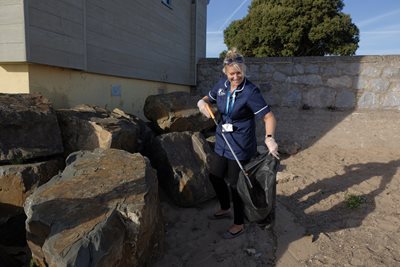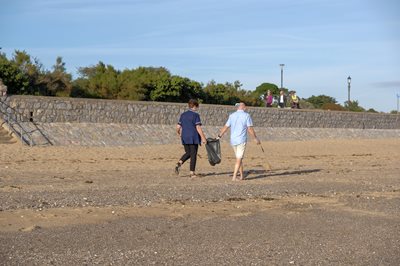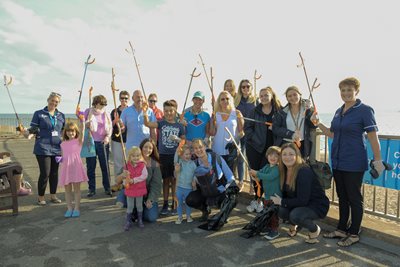Bluebird Care help fight pollution in Exmouth with a community beach clean
Published: 11/09/2019
After work on Tuesday 10th September, the Bluebird Care Exmouth team got together with members of the public and customers to clear the beach of rubbish.
The team met with staff from Bluebird Care’s East Devon and Exeter hub at Ocean Exmouth and were delighted to welcome locals and customers alike.
After an hour of combing the beach, Ocean Exmouth awarded the collectors with the biggest bag of rubbish a meal for four.
Exmouth Hub Manager, Frankie Rowe says:
“It’s not only important to look after our community, which is our day to day job, but we are here doing extra time (if you like) to look after our environment. Something that our whole community care about, we’ve had a lot of people turn up today, and we are really pleased.”
After the success of the event, the team at Bluebird Care plan to organise several beach cleans a year inviting members of the public to join in.
For more information, see Bluebird Exmouth’s Facebook page.
Plastic pollution facts and stats from surfers against sewage
Plastic pollution can now be found on every beach in the world, from busy tourist beaches to uninhabited, tropical islands nowhere is safe.
Scientists have recently discovered microplastics embedded deep in the Arctic ice.
In 1950, the world’s population of 2.5 billion produced 1.5 million tons of plastic; in 2016, a global population of more than 7 billion people produced over 320 million tons of plastic. This is set to double by 2034.
Every day approximately 8 million pieces of plastic pollution find their way into our oceans.
There may now be around 5.25 trillion macro and microplastic pieces floating in the open ocean. Weighing up to 269,000 tonnes.
Plastics consistently make up 60 to 90% of all marine debris studied.
Approx 5,000 items of marine plastic pollution have been found per mile of beach in the UK.
Over 150 plastic bottles litter each mile of UK beaches.
Recent studies have revealed marine plastic pollution in 100% of marine turtles, 59% of whales, 36% of seals and 40% of seabird species examined.
100,000 marine mammals and turtles and 1 million sea birds are killed by marine plastic pollution annually.
Source: https://www.sas.org.uk/our-work/plastic-pollution/plastic-pollution-facts-figures/




